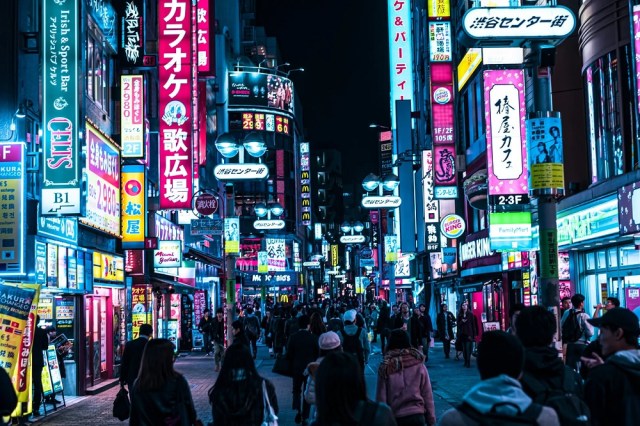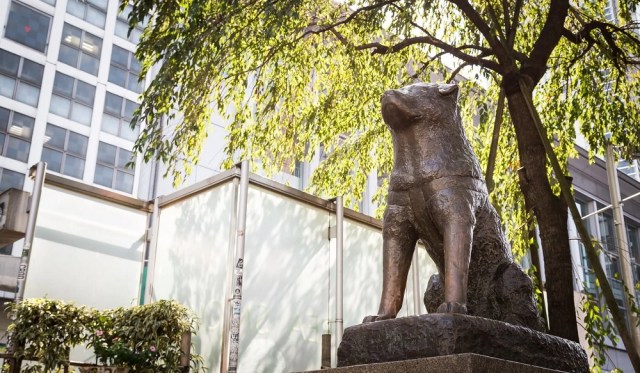Tokyo’s Shibuya proposing year-round public drinking ban, would be first in Japan’s capital

Shibuya looks to expand its Halloween drinking ban while another neighborhood wants to add one of its own.
For many years, Tokyo’s Shibuya neighborhood has had a reputation as a party town. More recently, though, it’s developed a reputation as a Halloween party town, and that’s not something that everyone is happy about. Ordinarily, most of Shibuya’s drinking and carousing is contained within the area’s bars, pubs, and clubs. Starting in the 2010s, however, on the nights of October 31 and the closest weekend, massive crowds began gathering in the area around Shibuya Station, creating a de-facto unregulated street party. Year by year the crowds got bigger and, with Japan’s general lack of rules against on-the-street consumption of alcohol, drunker.
With unruly behavior and litter getting increasingly out of hand, in 2019 the local authorities decided to put a public drinking ban in place during the Halloween season. Following that, a public drinking ban was put in place on New Year’s Eve, and now some Shibuya lawmakers want even more no-drinking nights during the year. How many? 365.
At this month’s upcoming Shibuya Ward Council session, legislation is going to be introduced which, if approved, would put a year-round public drinking ban in place. While public drinking would not be banned throughout all of Shibuya Ward, the restricted area would encompass the north side of Shibuya Station (including the statue of faithful dog Hachiko and the Shibuya Scramble intersection), the Center-gai shopping street, and the vicinities of the Shibuya Ward Office, Miyashita Park, and Maruyamacho music/nightclub area.

“The revised ordinance should have a degree of effect in reducing levels of litter and noise,” said a spokesperson for the proposal’s proponents, who hope to have the new rule go into effect this coming October. Several details would have to be hammered out, but legislators are looking at a nightly ban on the public consumption of alcohol between 6 p.m. and 5 a.m. This would be the first standing prohibition of public drinking for a Tokyo neighborhood.
Meanwhile, Shinjuku Ward, the section of Tokyo which borders Shibuya to the north, is looking to introduce a public drinking ban of its own, though only for the Halloween season. Shinjuku legislators say that since the start of Shibuya’s Halloween drinking bans, partiers who want to knock back a couple (or a whole lot of) cold ones while walking around the streets have been migrating to Shinjuku, estimating that Shibuya’s stricter policies resulted in 3,000 more people coming to Shinjuku to party last Halloween. With many partiers staying out all night long, Shinjuku’s drinking ban, which will be introduced at its Ward Council session this month, would be an overnight ordinance, straddling the night of October 31 and the morning of November 1.
A Halloween public drinking ban is something the Shinjuku chamber of commerce requested last year, after seeing the disruption Halloween partiers brought to the neighborhood and the litter they left behind. The request highlights that the Halloween crowds are a headache for local merchants and residents without bringing in much economic benefit as a tradeoff. Most of the partying takes place late at night and on the street, so local businesses don’t see much of a bump in business, and the neighborhood is left with the hassle and cost of cleanup afterwards, as most of the partiers come from other parts of Tokyo, Japan, and even the world.
As is sometimes the case with new ordinances in Japan, neither Shibuya’s nor Shinjuku’s new proposals have any sort of fine or penalty currently built into them, but would allow authorities to make people surrender or discard alcohol they’re seen consuming in public.
Though not explicitly mentioned by either the Shibuya or Shinjuku legislators, the proposals are also likely motivated in part by increasingly frequent high-profile incidents of impolite behavior by foreign tourists in Japan, as Tokyo’s Halloween street parties tend to draw large numbers of non-Japanese partiers as well.
Source: Yomiuri Shimbun (1, 2), NHK News Web
Top image: Pakutaso
Insert images: Pakutaso
● Want to hear about SoraNews24’s latest articles as soon as they’re published? Follow us on Facebook and Twitter!
Credit:

0 comments:
Post a Comment